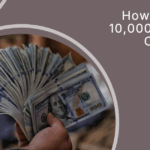Now Reading: Debt + Anxiety = Exhaustion — Here’s How I Fought Both💪😊💕
-
01
Debt + Anxiety = Exhaustion — Here’s How I Fought Both💪😊💕
Debt + Anxiety = Exhaustion — Here’s How I Fought Both💪😊💕
Fighting With Both At Same Time:-
7. I Created a “Debt-Free Vision Board”
When anxiety takes over, it’s easy to feel stuck in the present chaos. I started visualizing what life would look like without debt—sleeping better, traveling without guilt, and saving for my dreams.
I created a simple vision board with inspiring images:
-
A photo of a cozy home I wanted to own.
-
A beach vacation I dreamed of.
-
Quotes about freedom and peace.
Every time I felt anxious about bills, I’d look at this board and remind myself: “This is why you’re doing it.” Visualization gave me the strength to keep going when my energy was low.
8. I Started Journaling My Money Feelings
Anxiety around debt isn’t just about numbers—it’s about emotions we suppress. I started a money journal where I wrote down my thoughts every night:
-
What triggered my stress today?
-
What am I proud of financially?
-
What’s one small step I can take tomorrow?
This helped me process guilt, fear, and shame. Over time, I started seeing patterns—like overspending whenever I felt lonely—and I could address the root causes instead of just the symptoms.
9. I Practiced the “No-Spend Day” Rule
To control both my anxiety and debt, I introduced no-spend days into my week. These were days when I challenged myself to spend nothing at all (except for necessities already planned).
It wasn’t about depriving myself—it was about regaining control. I’d spend these days cooking at home, reading a book, or going for a walk. Surprisingly, these no-spend days didn’t just save me money—they gave me mental peace. I realized happiness doesn’t always cost money.
10. I Focused on One Debt at a Time
Trying to pay off all debts at once felt overwhelming and fueled my anxiety. So, I chose one small debt to tackle first using the snowball method. Each time I paid off one debt, I felt lighter—like I had removed a weight off my chest.
Paying off that first credit card gave me such a boost that I cried happy tears. It wasn’t just a financial win; it was a mental win. I could finally say, “I’m making progress.”
11. I Practiced Mindful Spending
Before every purchase, I started asking myself:
-
“Do I really need this, or am I just stressed?”
-
“Will this make me feel better tomorrow or worse?”
Nine times out of ten, I’d put it back. Mindful spending helped me break free from emotional shopping, which was one of my biggest triggers for anxiety and debt.
12. I Built Tiny “Feel-Good” Rituals That Cost Nothing
I used to believe treating myself meant spending money—like buying fancy candles or going for spa days. But I realized self-care doesn’t have to cost anything.
I started simple, no-cost rituals like:
-
Morning walks with my favorite playlist.
-
Warm baths with homemade scrubs.
-
Writing gratitude lists before bed.
These small acts of love reminded me that I didn’t need to spend to feel good. It gave me emotional balance, which helped me stay consistent with my debt payments.
13. I Learned to Forgive Myself
One of the biggest reasons debt and anxiety feel heavy is because we beat ourselves up for past mistakes. I had to learn to forgive myself for overspending, for ignoring my bills, for “not being better.”
I told myself: “You’re doing your best with what you have. You’re learning, and that’s what matters.”
When I stopped blaming myself, I felt lighter—and that clarity helped me take smarter financial steps.
14. I Celebrated Every Tiny Step
Paying even $20 extra on a credit card felt like a victory. I celebrated with simple things—like a cozy movie night or baking something sweet at home.
These celebrations mattered because they kept me motivated. When you’re fighting both debt and anxiety, you need to acknowledge how far you’ve come—even if you’re not where you want to be yet.
15. I Replaced Fear with Gratitude
Instead of waking up every day thinking about what I lacked, I started practicing gratitude. I’d write down three things I was thankful for each morning—like having a roof over my head, food in the fridge, or supportive friends.
Gratitude doesn’t erase debt, but it changes how you see life. I realized I had more than enough to start fresh, and that positivity gave me the courage to face tough days.
16. I Asked for Help When I Needed It
There’s no shame in reaching out for help. I talked to my bank to negotiate lower interest rates. I joined online groups where people shared debt-free journeys. And sometimes, I just needed someone to remind me that I wasn’t broken—I was just learning.
Asking for guidance turned my anxiety into empowerment because I realized I wasn’t alone in this fight.
❤️❤️Final Words:-
Debt and anxiety together can feel like a storm, but storms don’t last forever. By taking small, consistent steps—whether it’s journaling, practicing gratitude, or tackling one debt at a time—you can regain control of your life.
Remember this: you are not your debt. Your worth isn’t defined by the number in your bank account, and every little step you take toward financial freedom is proof of your strength.














